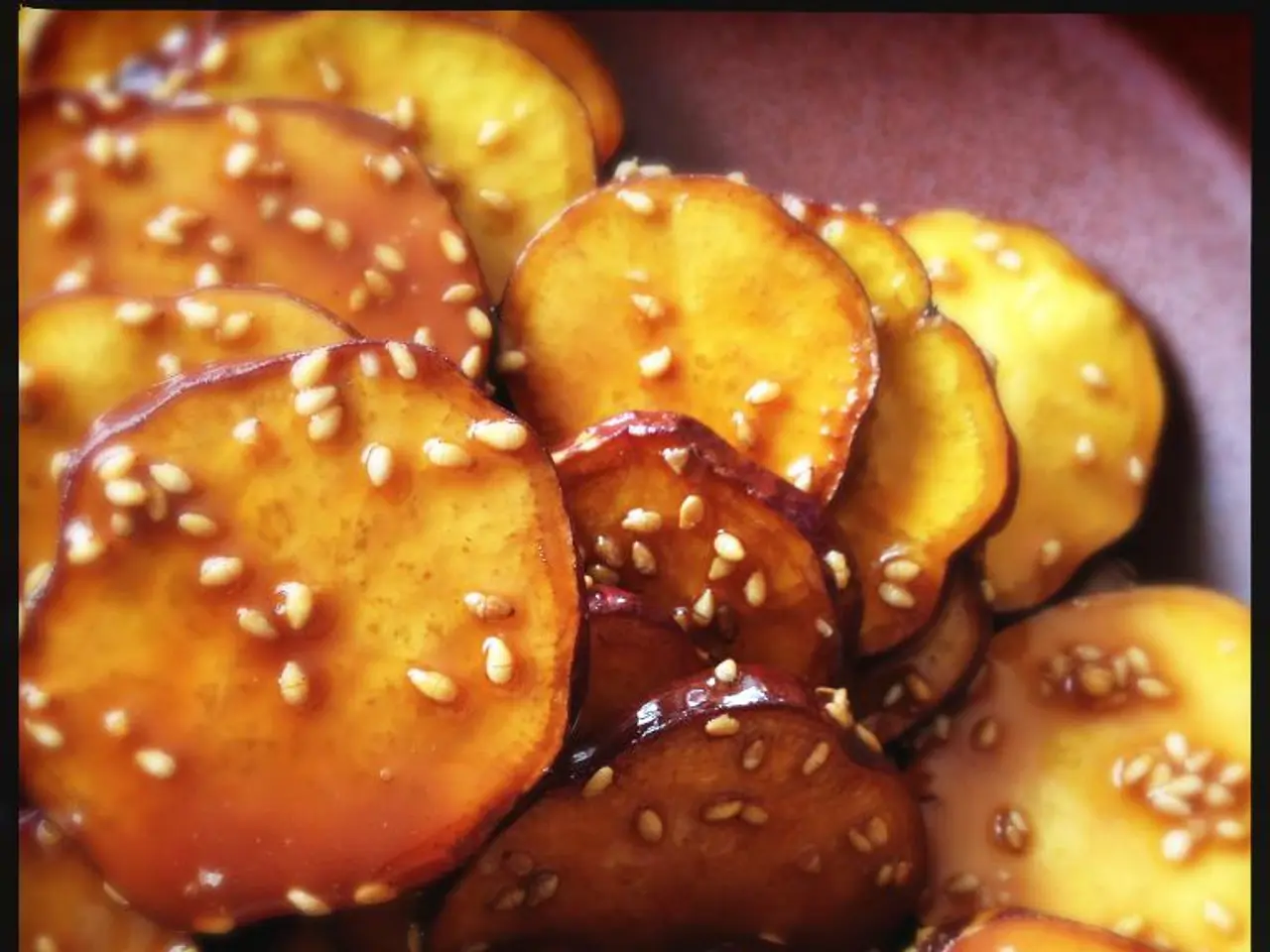Diet of soft foods: Food options to consume and those to avoid
Following a soft food diet can be essential for people who have undergone surgery on the mouth, head, neck, or stomach, or those managing certain medical conditions. This diet, designed to minimise bowel activity, chewing effort, and reduce irritation in the mouth and throat, is crucial for improving safety for those with swallowing difficulties.
The common reasons for following a soft food diet include recovery from surgery, managing medical conditions, difficulty chewing or swallowing due to dental issues or after surgeries, reducing the risk of choking, and soothing an inflamed or sore throat.
When on a soft food diet, foods should be soft, moist, and easy to chew and swallow. Preparation often involves cooking until soft, cutting foods into small pieces (usually less than ½ inch to 1.5 cm), and moistening foods with broth, gravy, or sauces to enhance ease of swallowing.
Grains such as cream of wheat, finely ground grits, rice dry cereals, white bread, white pasta, white rice, crackers, bagels, and rolls made from refined flour are suitable options. Fruits and vegetables like ripe bananas, soft melon, canned or well-cooked fruits and vegetables without skins or seeds, juices without pulp, and strained vegetable juices are also recommended.
Dairy products like cow's milk, lactose-free milk, soy milk, rice milk, cottage cheese, and smooth yogurt without nuts or fruit pieces are suitable for the soft food diet. Protein-rich foods such as eggs, fish, tender well-cooked poultry (chicken, turkey), beef, tofu, and smooth peanut butter are also included.
However, it's important to avoid hard, crunchy, or dry foods such as raw vegetables, nuts, seeds, popcorn, and hard breads or toast. Foods with skins, husks, or outer shells like peas, beans, and whole grapes should also be avoided. It's best to steer clear of fibrous, crumbly, or tough-textured foods, and foods that can irritate sensitive tissues, such as acidic foods when dealing with a sore throat.
For those struggling to maintain a healthy weight or experiencing difficulty eating a soft food diet, nutrient-rich drinks alongside meals might be useful. The mechanical soft food diet uses equipment like blenders or food processors to make food into a smooth puree.
Followers of the soft food diet can use sauces like gravy, cheese sauce, parsley sauce, white sauce, and stock to soften foods. Tinned fruit in juice, if necessary mashed, is suitable for the soft food diet. Ripe, soft fruits such as bananas, pears, and berries are suitable for the soft food diet, but foods with dried fruits and nuts, such as fruit cake, should be avoided.
Chemotherapy and radiotherapy can make the digestive tract sore and inflamed, and a soft food diet may benefit those experiencing this condition. It's important to remember that the soft food diet does not have to be restrictive and should include a variety of nutritious foods from the main food groups: carbohydrates, protein-rich foods, dairy and alternatives, and fruit and vegetables.
A texture-modified diet, similar to the soft food diet, may be recommended for people at risk of food getting stuck in the throat or windpipe. People should take care with chewy, fatty meat, tough or overcooked meat, cured meat like salami or chorizo, fish with bones, nuts, seeds, and peanut butter when following a soft food diet.
People should include a variety of foods in their diet to prevent boredom and ensure a wide range of nutrients. The soft food diet should be followed only under the guidance of a healthcare professional.
References: [1] Mayo Clinic. (2021). Soft food diet. Retrieved from https://www.mayoclinic.org/healthy-lifestyle/nutrition-and-healthy-eating/in-depth/soft-food-diet/art-20048380 [2] NHS. (2021). Soft food diet. Retrieved from https://www.nhs.uk/live-well/eat-well/soft-food-diet/ [3] Cleveland Clinic. (2021). Soft food diet. Retrieved from https://my.clevelandclinic.org/health/diets/17784-soft-food-diet [4] Johns Hopkins Medicine. (2021). Soft food diet. Retrieved from https://www.hopkinsmedicine.org/health/wellness-and-prevention/soft-food-diet-for-swallowing-difficulties
- People managing conditions like asthma, HIV, multiple sclerosis (MS), or undergoing health-and-wellness programs focusing on fitness-and-exercise and mental-health might benefit from a balanced diet that includes softer food options.
- Aq, while not directly related to food, is an important aspect of overall health, and it's crucial to maintain proper hydration levels, especially when following a soft food diet.
- Other nutrition considerations include ensuring a sufficient intake of essential nutrients such as protein, calcium, and essential fatty acids, even while on a soft food diet.
- In addition to soft, moist foods, nutrient-rich drinks can help maintain a balanced diet and prevent difficulties in eating.
- It's important to note that the soft food diet should not be a long-term solution; it's designed for recovery or managing specific conditions, and medical advice should be sought for appropriate dietary adjustments.
- Science plays a vital role in understanding the impact of food choices on health, and ongoing research in nutrition continues to provide valuable insights for health-and-wellness practitioners and the public alike.
- Health-and-wellness professionals recommend following a texture-modified diet for those at risk of food getting stuck in the throat or windpipe, which can include people with certain neurological conditions or those recovering from surgery.




